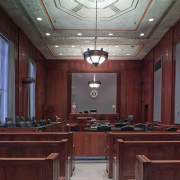Do Trucks Have to Drive in a Certain Lane?
If you’ve ever been stuck behind a slow-moving truck on the highway, you know that this can be a very frustrating experience. This situation can quickly become much more stressful if the slow-moving truck causes an accident. Things can become seriously dangerous when trucks drive in the fast lane (the left lane) and refuse to move out of the way. As frustrating as this can be, it’s actually quite common in Pennsylvania. So common, in fact, that the Keystone State has created laws to discourage this from ever happening. But are these laws really enforced? What happens if you get into an accident because a truck breaks these laws?
If you have been involved in a truck accident in Pennsylvania, it’s important to connect with a qualified attorney as soon as possible. With the help of an experienced personal injury attorney, you can take legal action against anyone who was negligent, including irresponsible truck drivers. Team up with a lawyer who specializes in truck accidents, and you can give yourself a much better chance of a positive legal outcome.
What Do Pennslyvania’s Laws Say About Proper Lane Usage for Trucks?
The laws on proper lane usage for trucks in Pennsylvania are quite clear. If a truck is carrying a load of more than 10,000 pounds, it cannot use the left lane. Note that this only applies to highways in which there are three or more lanes going in the same direction. Semi-recent court rulings confirm that this applies to all drivers of large commercial vehicles. The penalty for this infraction is quite light, and drivers may only face a fine of $25 if they’re caught.
Are these Laws Actually Enforced?
One of the most frequent complaints about this law is that it’s not actually enforced. Police can’t patrol every stretch of the highway, and many truck drivers violate these laws without ever being caught.
What if a Truck Causes an Accident While Traveling in the Left Lane?
If a truck causes an accident while traveling in the left lane on a highway with more than three lanes moving in the same direction, there is a strong chance they will be considered at fault. This clear negligence can be easily established in court, and you can make a case that their ignorance of the law directly led to your injuries. While Pennsylvania is a “no-fault” car insurance state, establishing fault may be important if you have suffered serious injuries, and wish to move ahead with a lawsuit against the negligent driver.
Enlist the Help of a Qualified Attorney Today
If you’ve been searching Pennsylvania for a qualified, experienced personal injury attorney, look no further than Frischman & Rizza, P.C. We can help you get the compensation you need to cover your injuries after a truck accident. These accidents can be incredibly traumatic, and you deserve the opportunity to take legal action against those responsible. Reach out today, and we can develop an effective action plan together.
Frischman & Rizza, P.C.
7300 Penn Ave, Pittsburgh, PA 15208
(412) 291-3977











